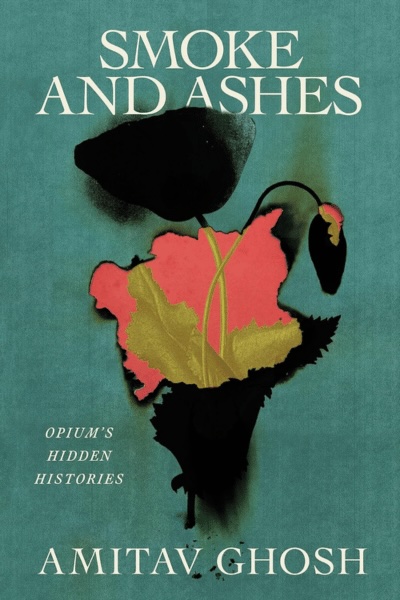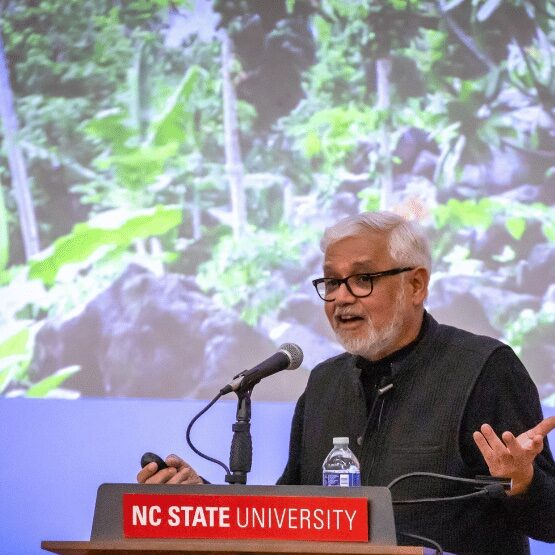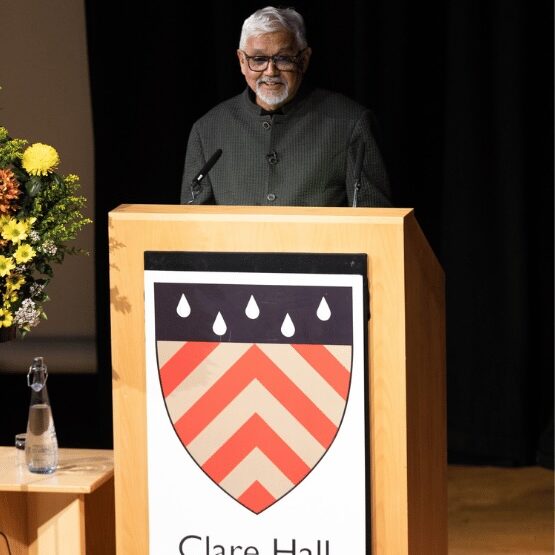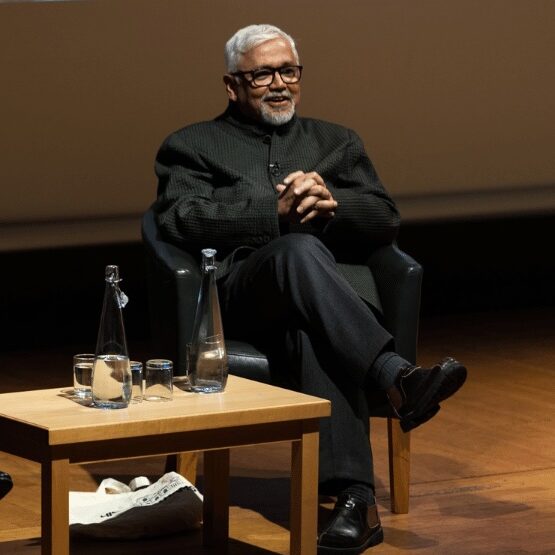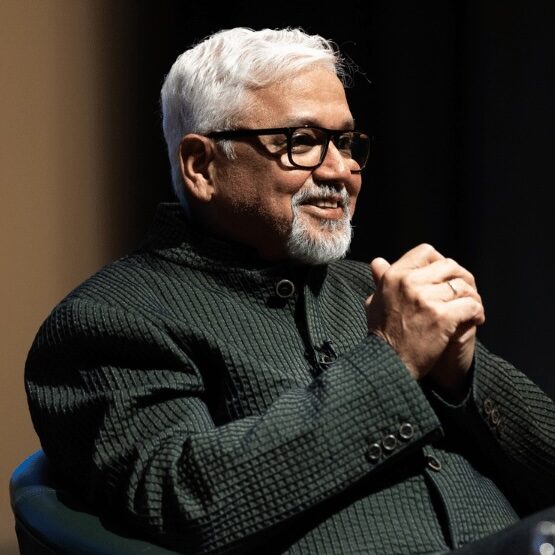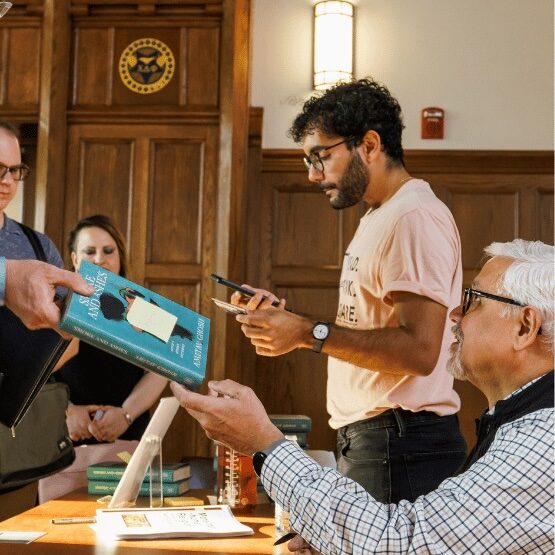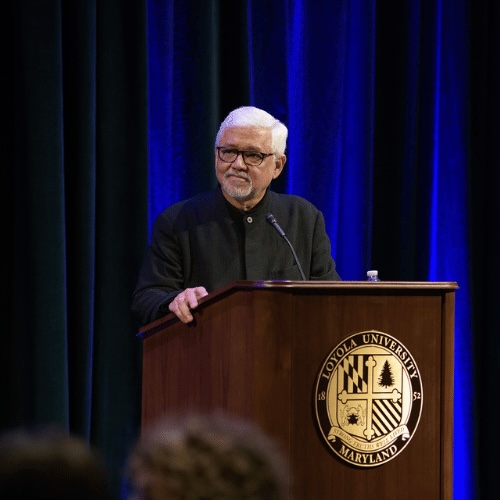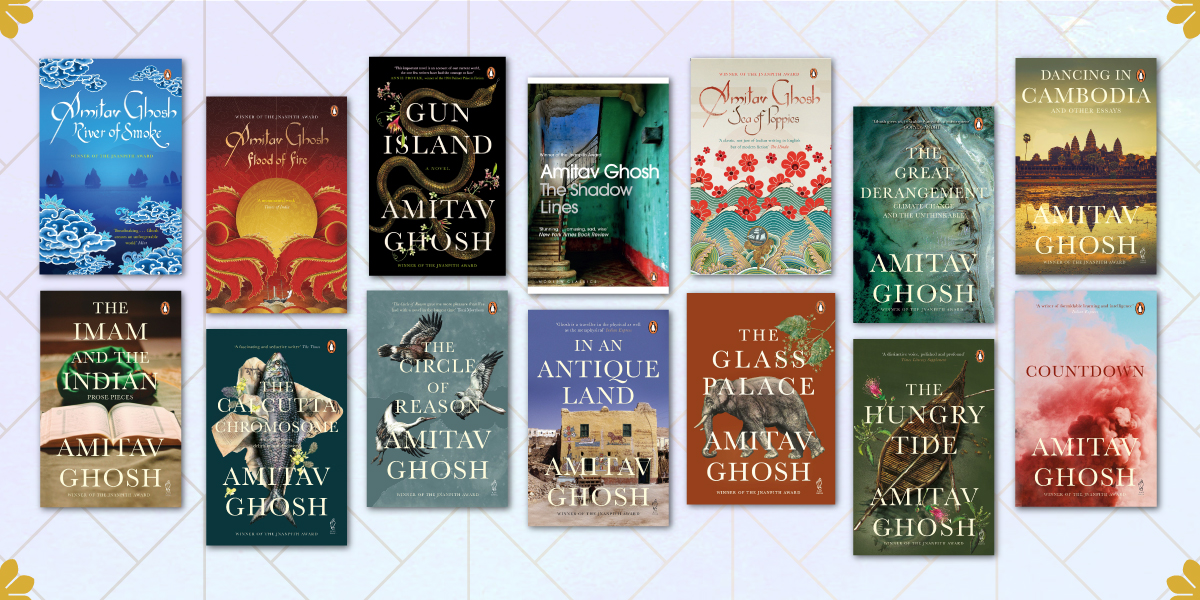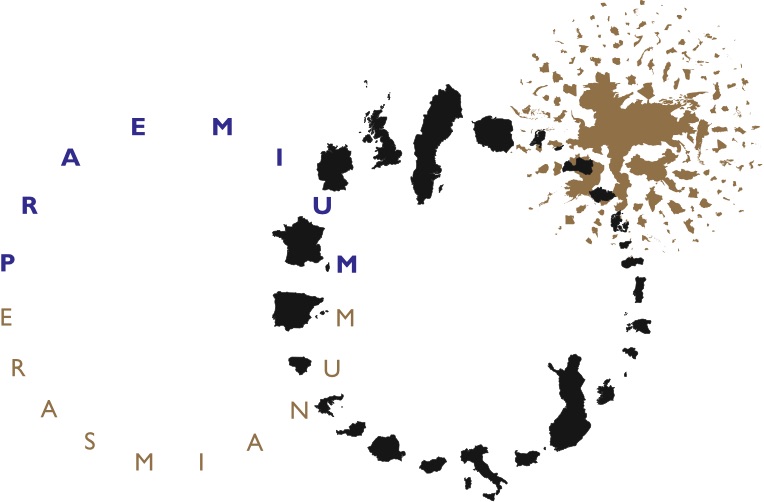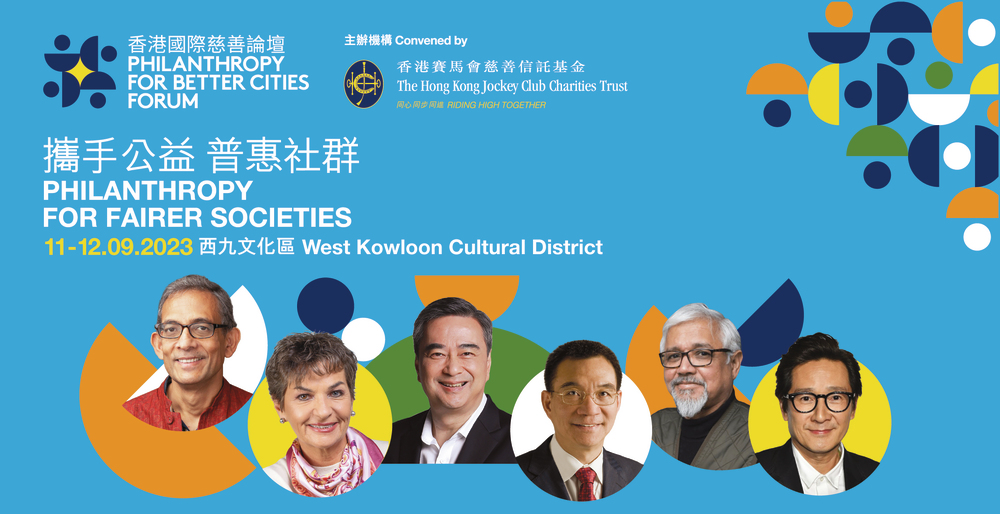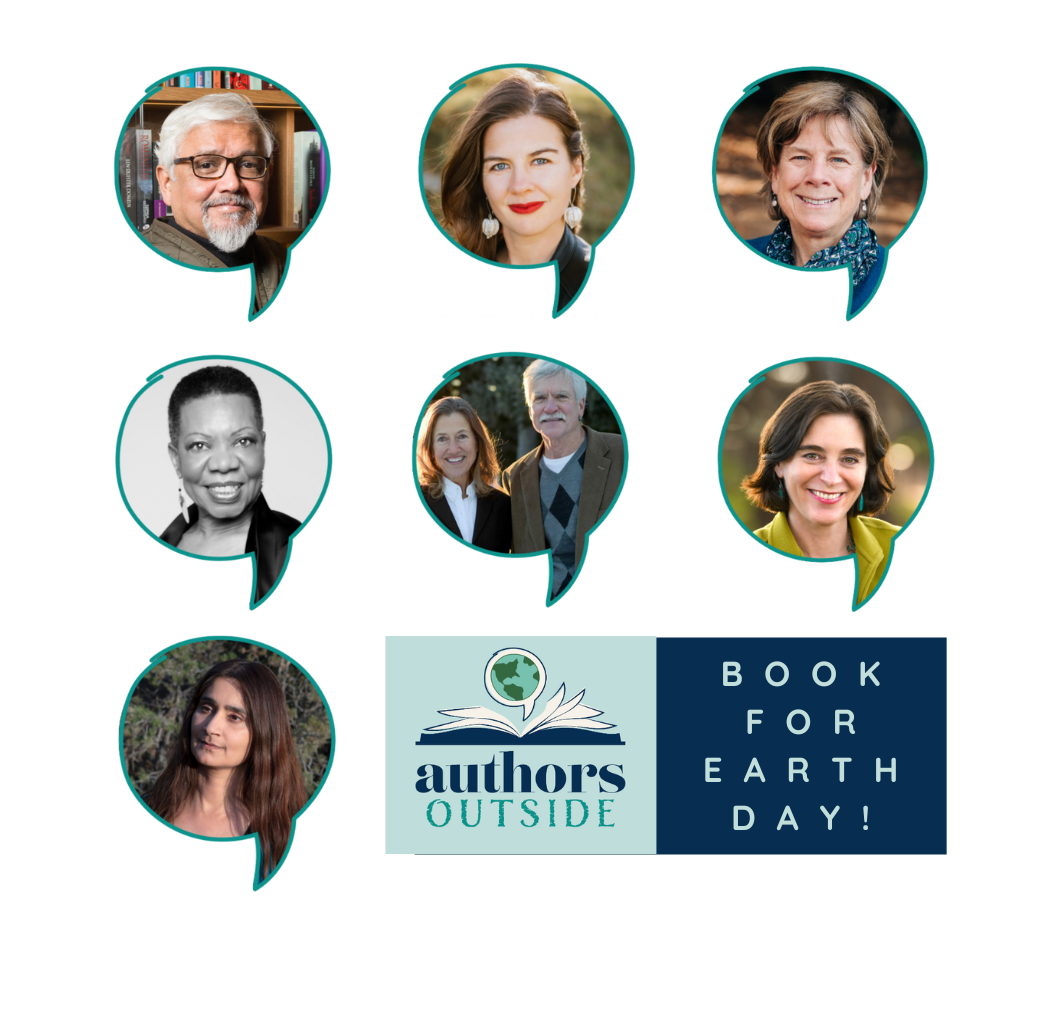Amitav Ghosh was born in Calcutta and grew up in India, Bangladesh and Sri Lanka. He studied in Delhi, Oxford and Alexandria and is the author of The Circle of Reason, The Shadow Lines, In An Antique Land, Dancing in Cambodia, The Calcutta Chromosome, The Glass Palace, The Hungry Tide, and The Ibis Trilogy, consisting of Sea of Poppies, River of Smoke and Flood of Fire. The Great Derangement; Climate Change and the Unthinkable, a work of non-fiction, appeared in 2016. Gun Island, was released in September 2019. Ghosh’s first-ever book in verse, Jungle Nama: A Story of the Sundarban, was published February 2021. His next book, The Nutmeg’s Curse: Parables for a Planet in Crisis, was released in October, 2021. His latest book, Smoke and Ashes: Opium’s Hidden Histories was released in February 2024.
The Circle of Reason was awarded France’s Prix Médicis in 1990, and The Shadow Lines won two prestigious Indian prizes the same year, the Sahitya Akademi Award and the Ananda Puraskar. The Calcutta Chromosome won the Arthur C. Clarke award for 1997 and The Glass Palace won the International e-Book Award at the Frankfurt book fair in 2001. In January 2005 The Hungry Tide was awarded the Crossword Book Prize, a major Indian award. His novel, Sea of Poppies (2008) was shortlisted for the Man Booker Prize, 2008 and was awarded the Crossword Book Prize and the India Plaza Golden Quill Award.
Amitav Ghosh’s work has been translated into more than thirty languages and he has served on the juries of the Locarno and Venice film festivals. His essays have appeared in The New Yorker, The New Republic and The New York Times. They have been anthologized under the titles The Imam and the Indian (Penguin Random House India) and Incendiary Circumstances (Houghton Mifflin, USA). The Great Derangement: Climate Change and the Unthinkable, a work of non-fiction, was given the inaugural Utah Award for the Environmental Humanities in 2018.
Amitav Ghosh holds five Lifetime Achievement awards and six honorary doctorates. In 2007 he was awarded the Padma Shri, one of India’s highest honors, by the President of India. In 2010 he was a joint winner, along with Margaret Atwood, of a Dan David prize, and 2011 he was awarded the Grand Prix of the Blue Metropolis festival in Montreal. In 2018 the Jnanpith Award, India’s highest literary honor, was conferred on Amitav Ghosh. He was the first English-language writer to receive the award. In 2019 Foreign Policy magazine named him one of the most important global thinkers of the preceding decade. In 2024, he was awarded the Erasmus Prize and was also elected to the American Academy of Arts and Sciences.

